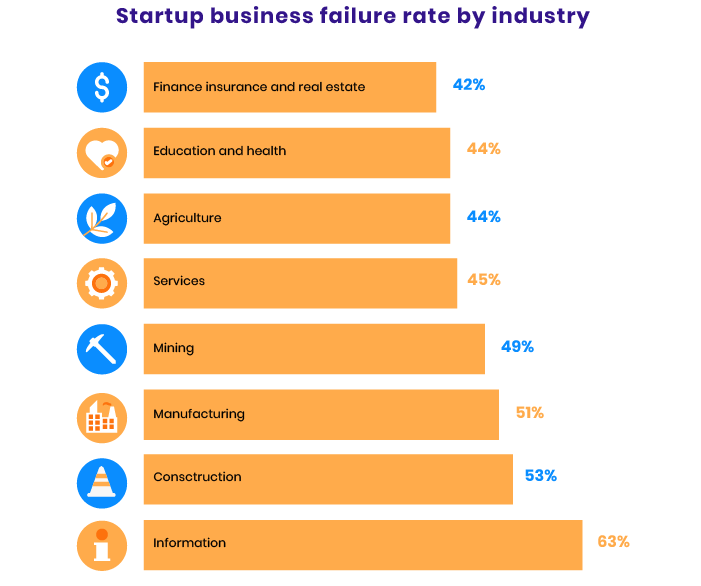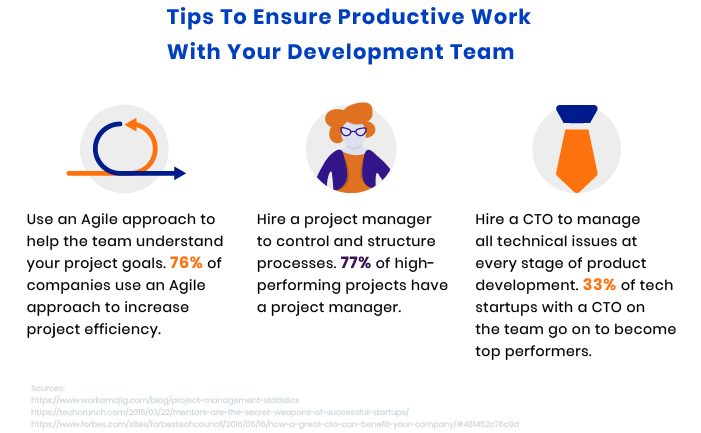-
Product Management
Software Testing
Technology Consulting
-
Multi-Vendor Marketplace
Online StoreCreate an online store with unique design and features at minimal cost using our MarketAge solutionCustom MarketplaceGet a unique, scalable, and cost-effective online marketplace with minimum time to marketTelemedicine SoftwareGet a cost-efficient, HIPAA-compliant telemedicine solution tailored to your facility's requirementsChat AppGet a customizable chat solution to connect users across multiple apps and platformsCustom Booking SystemImprove your business operations and expand to new markets with our appointment booking solutionVideo ConferencingAdjust our video conferencing solution for your business needsFor EnterpriseScale, automate, and improve business processes in your enterprise with our custom software solutionsFor StartupsTurn your startup ideas into viable, value-driven, and commercially successful software solutions -
-
- Case Studies
- Blog
How to Prevent Mistakes That Kill Startups: Real Examples with Useful Tips
All I want to know is where I’m going to die so I’ll never go there.
Many startups believe they’re creating the next great thing. In reality, over 90 percent of them fail.

To achieve success, entrepreneurs should be aware of common challenges so they don’t make the same mistakes that others have already made. In this article, we review common reasons why startups fail and how to avoid failure and work on things that actually create value. Here’s a dose of reality.
#1 Good idea, bad business
Ideas are easy. Implementation is hard.
The most common reason for startup failure is an entrepreneur’s assuming a brilliant idea is enough. Some entrepreneurs sincerely believe they’ll come up with a great idea and customers will immediately beg for it and fork over their money. But actually, they don’t. Vitoto had a relevant idea to allow people to create and share videos collaboratively. But bad business decisions led to this startup’s failure.
Don’t be too optimistic about acquiring your first customers; thoroughly think out the business model instead. A business model should account for all costs, the required technology stack and team, the marketing strategy, and different methods of monetization. The essence of a business model is to allow entrepreneurs to better understand how they’ll run their business and operations and how to attract and win customers.
The lesson we can learn: It doesn’t matter how good the idea is; if it can’t be profitable or scalable in the future, the startup eventually will fail.
#2 Lack of market interest
What do you need to start a business? Three simple things: know your product better than anyone, know your customer, and have a burning desire to succeed.
Unfortunately, most entrepreneurs miss one important aspect in the early stages of product development: They don’t clearly understand their product’s aim, who they’re building the product for, what problems it should solve, and what it might be able to achieve in the market.
For example, Moped (a free messaging application) failed due to lack of market demand. As the startup founder Schuyler Deerman said, “We didn’t build something that enough people wanted.”
Poor market research leads to misunderstanding of the target audience and, as a result, a product that no one wants.

There are some common causes of poor product-market fit:
- Not enough demonstrated value to make people actually use or buy the product
- Wrong time to release the product – A startup can be ahead of its market by a few years and customers may just not be ready for a particular solution at the moment.
- The product doesn’t solve a problem for enough people
To avoid challenges with market fit, startups should validate their products using pilot projects before launching. Or alternatively, they can conduct beta testing to significantly reduce the risk of failure and market rejection. One more solution is to build a minimum viable product (MVP) that allows entrepreneurs first to build the core features of a product, test it, and then develop the next version according to user feedback.
The lesson we can learn: To make a startup prosper, provide a new solution that will be valuable for people.
#3 Premature scaling
Premature scaling is putting the cart before the proverbial horse. The more a company grows, the further away from profitability it becomes.
The goal of many startups is to not be a startup anymore. They’re all in a hurry to scale. Scaling refers to hiring people, getting funded, releasing new products, entering new markets – and growing too much too soon. Unfortunately, not everything is as smooth as it may seem. In reality, up to 70 percent of startups scale too early and, as a result, do things out of order.
As they say, slow and steady wins the race. So do everything step by step:
- Get to know your target audience
- Thoroughly consider what issues the product will solve
- Deliver an MVP to market and get feedback
- Add features, fix issues, and release the product again
- Promote the product so people know it exists
- Optimize the conversion funnel and find ways to retain more customers
- Scale when the cost to acquire a user is lower than their lifetime value

Here are a few indicators that a business is ready to scale:
- There’s a clear understanding of the lifetime value of customers and the cost to acquire a new user
- The business model is repeating, meaning the company is acquiring customers in a similar way
- Entrepreneurs work more on the business than in the business
The lesson we can learn: Don’t get ahead of yourself. Don’t try to grab a new market when the business isn’t ready.
#4 Challenges with the development team
The secret to successful hiring is this: look for the people who want to change the world.
An incredibly common problem that causes startups to fail is challenges with the development team. Statista shows that 23 percent of startups fail due to the wrong team.
Let’s take a look at the most common challenges startup founders may face with a development team.
Lack of technical expertise
Usually, startup founders are unwilling to invest much money on product development in the initial phase. Accordingly, they look for cheap solutions and don’t hire enough technical experts. As a result, developers lacking proper qualifications build a low-quality product that no one will use.
Ineffective management
One thing startups definitely can’t afford is poor management. Poor management can mean a development team doesn’t know exactly what the company needs and isn’t 100 percent involved in the process. Delays are frequent. Due to lack of clarity, product quality deteriorates and the product development takes longer than required.
Lack of people
Needless to say, all founders are eager to hire the best specialists. Hiring locally is easy and convenient, but unfortunately, the local talent pool is usually limited. Startup founders should be ready for the fact that not all specialists want to relocate for a job.
Poor communication
The Holmes Report shows that due to poor communication, companies lose $37 billion annually. Poor communication isn’t just about language issues; it’s about the development team not setting up a clear communication flow, ignoring meetings, and not having so-called “constant fusion.” Founders just can’t work closely with the team during the whole development process and are in the dark. This leads to the development team lacking a vision for the product and simply not getting the idea.
Below, you can see some steps to prevent issues with your development team.

#5 Poor monetization
It’s almost always harder to raise capital than you thought it would be, and it always takes longer. So plan for that.
It’s crucial for any business to have a clear monetization strategy; otherwise, the company has every chance to die. That’s what happened to Everpix.
Everpix allowed users to store their smartphone pictures on a secure server. Unfortunately, the founders never applied any monetization strategies. When it was time to pay Amazon Web Services for the servers, the budget was blown, and the company had to shut down.
In order not to repeat the Everpix mistake, startups should clearly understand how they’ll recoup their investments and make money with the product. Let’s take a look at the biggest driver of software revenue.

The lesson we can learn: A brilliant product idea isn’t enough. For a business to flourish, it’s vital to keep your eyes on monetization strategies.
Now that we’ve reviewed common reasons why startups fail, let’s summarize how to avoid these mistakes or overcome them.

If you want more useful insights, subscribe to our blog!










